When choosing the best yarn for a baby blanket, there are a few things you need to consider. For instance, the yarn needs to be soft and gentle against the baby’s skin and it should be manufactured without the use of harmful chemicals and substances.
I have written this small guide to help you select a baby-safe yarn for your next knitting or crocheting project.
1. Thickness of the Yarn
Most yarns labeled as suitable for babies are either fingering or DK weight and I would recommend to knit baby clothes with thin yarns. However, for blankets you can use also thicker worsted weight yarns. The thicker the yarn the quicker the blanket knits up.
The thickness of the yarn is typically described with yarns weights. Below most common yarn weights used in baby blankets listed from thinnest to thickest.
| Yarn weight | Recommended needle size US (mm) | Recommended hook size US (mm) |
|---|---|---|
| Fingering (thinnest) | 1 to 3 (2.25-3.25 mm) | B-1 to E-4 (2.25-3.5 mm) |
| Sport | 3 to 5 (3.25-3.75 mm) | E-4 to 7 (3.5-4.5 mm) |
| DK | 5 to 7 (3.75-4.5 mm) | 7 to I-9 (4.5-5.5 mm) |
| Aran | 7 to 9 (4.5-5.5 mm) | I-9 to K-10 1⁄2 (5.5-6.5 mm) |
| Chunky | 9 to 11 (5.5-8 mm) | K-10 1⁄2 to M-13 (6.5-9 mm) |
| Super Bulky (thickest) | 11 to 17 (8-12.75 mm) | M-13 to Q (9-15 mm) |
2. Certifications
If you want to be absolutely sure that no harmful chemicals or substances are used in the manufacturing process select a yarn that has the Standard 100 by OEKO-TEX® or GOTS Certification.
- OEKO-TEX® certificate means that the yarns have passed the highest standard, suitable for direct contact with the most sensitive skin, even babies and small children. They have been tested for over 350 harmful substances by independent laboratories, and certified not to contain harmful levels of irritants, allergens or carcinogens.
- GOTS certificate means that the yarn is environmentally friendly and produced in a socially responsible way. It stands for very high demands in all parts of the supply chain, from when the raw goods are harvested, to you having the finished product on your needles.
3. Best Yarns for a Baby Blanket by Material
Merino Wool
I am a big fan of natural fibers and especially wool. It is a great insulator and will keep the baby warm in the winter months but also cool during the summer months. Merino wool is also very soft, so it won’t irritate the baby’s skin and it’s very pleasant to knit with.
One downside of wool is that it can be difficult to wash but because wool is naturally dirt resistant it actually doesn’t require washing quite that often. You can also choose superwash wool that can be machine washed.
Superwash or not the blanket needs to be flat to dry otherwise the blanket stretches and loses its shape.
Mayflower
Easy Care Big
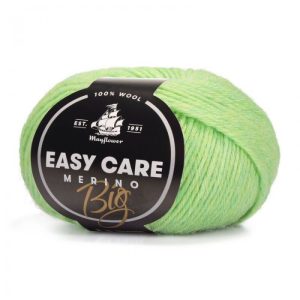
- Weight: Aran
- Fiber Content: 100% Superwash Merinowool
- Care: Machine wash
Schachenmayr
Merino Extrafine 120
OEKO-TEX® Certified
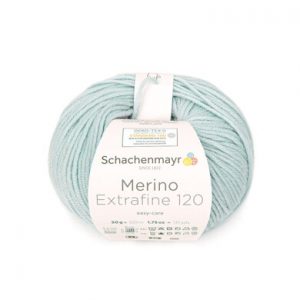
- Weight: DK
- Fiber Content: 100% Superwash Merino Wool
- Care: Machine wash
KnitPicks
Swish DK
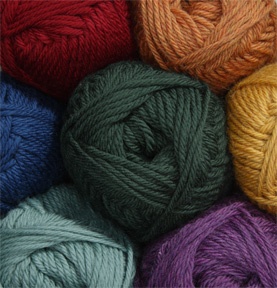
- Weight: DK
- Fiber Content: 100% Superwash Merinowool
- Care: Machine wash
Cotton
Cotton is a plant-based natural fiber and a great choice for a baby blanket because it is soft, durable, and easy to care for. It is also hypoallergenic so it’s a good choice if your baby has sensitive skin. One downside of cotton is that it might feel a little bit rough for your hands while knitting as it’s not as bouncy as wool is.
Cotton can be machine washed and dried.
Lion Brand Yarn
Oh Baby
ORGANIC
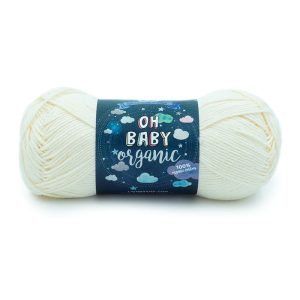
- Weight: Sport
- Fiber Content: Cotton
- Care: Machine wash
Hobbii
Baby Cotton Organic
GOTS Certified

- Weight: Fingering
- Fiber Content: Cotton
- Care: Machine wash
KnitPicks
Dishie
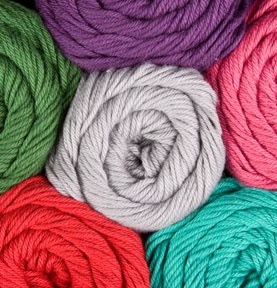
- Weight: Worsted
- Fiber Content: Cotton
- Care: Machine wash
Bamboo
Bamboo is another plant-based natural fiber that is a great choice for baby blankets. It is soft, hypoallergenic, and has a luxurious feel and drape.
Bamboo is also very absorbent so it can help regulate body temperature. Bamboo can be machine washed but needs to be air dried to prevent shrinkage.
Hobbii
Rainbow Bamboo
OEKO-TEX® CERTIFIED

- Weight: Sport
- Fiber Content: 60% bamboo viscose, 40% cotton
- Care: Machine wash
Lion Brand Yarn
Truboo
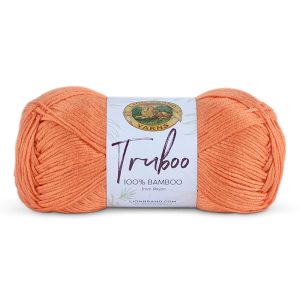
- Weight: DK
- Fiber Content: 100% Rayon from Bamboo
- Care: Machine wash
King Cole
Bamboo Cotton DK
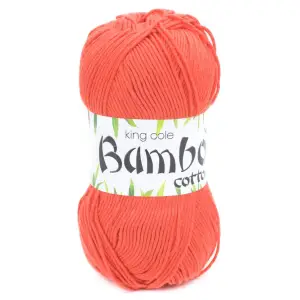
- Weight: DK
- Fiber Content: 50% Bamboo 50% Cotton
- Care: Machine wash
Polyester
Polyester is a synthetic fiber but based on its qualities it is a good choice for baby blankets. It is very strong and durable so it will stand up to lots of use and washings. Polyester is also easy to care for because it can be machine washed and dried.
One downside of polyester is that it isn’t as breathable as the natural fibers.
Hobbii
Baby Snuggle
OEKO-TEX® CERTIFIED
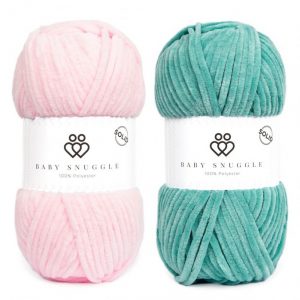
- Weight: Super Bulky
- Fiber Content: 100% Polyester
- Care: Machine wash
Lion Brand Yarn
Naptime
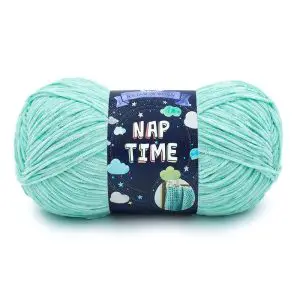
- Weight: Aran
- Fiber Content: 100% Polyester
- Care: Machine wash
Bernat
Baby Blanket
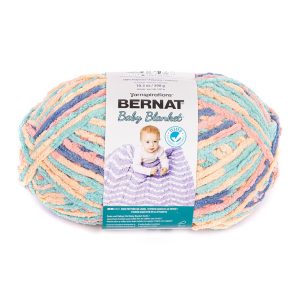
- Weight: Bulky
- Fiber Content: 100% Polyester
- Care: Machine wash
Acrylic
Acrylic is another synthetic fiber (plastic) that is a good choice for baby blankets. It is very affordable and easy to care for. Acrylic can be machine washed and dried but it pills easily and isn’t as durable as some of the other fibers on this list.
KnitPicks
Brava Worsted
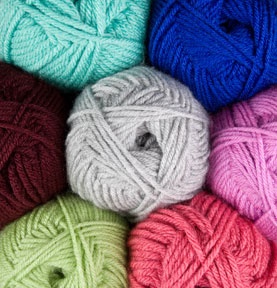
- Weight: Worsted
- Fiber Content: 100% Premium Acrylic
- Care: Machine wash
Hobbii
Amigo
OEKO-TEX® CERTIFIED
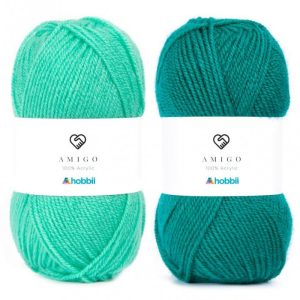
- Weight: DK
- Fiber Content: 100% HB acrylic
- Care: Machine wash
Lion Brand Yarn
Baby Soft
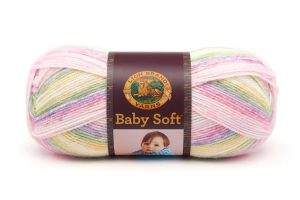
- Weight: DK
- Fiber Content: Acrylic, Nylon, Rayon
- Care: Machine wash
Avoid these
Babies will put into their mouths everything they can get their hands on. Mohair, angora, and alpaca fibers are all soft and luxurious but may shed, posing a danger to the child. Save these fibers for items that will be used by other than small babies.
4. Color of the Yarn
Typically baby yarns come in pastel colors but actually, a little bit darker colors may hide spills and stains.
Also, make sure to buy yarns that are dyed with safe colors. Hand-dyed yarns aren’t necessarily a safe option because they might bleed the color. Read more about how to regonize baby safe yarns below.
5. Durability
Many websites recommend you to buy cheap yarn because they consider baby blankets to have a very short life span. However, I highly recommend you to select a good quality yarn and a timeless pattern so that the blanket can be passed on to generations to come.
Wouldn’t it be great if the blanket you made for your children are used by your grand- and great-grandchildren?



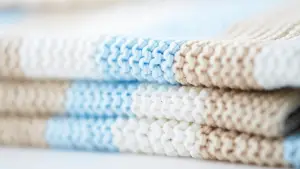
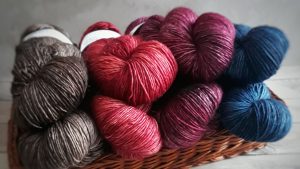
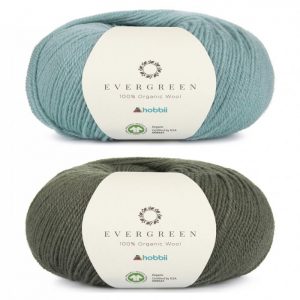
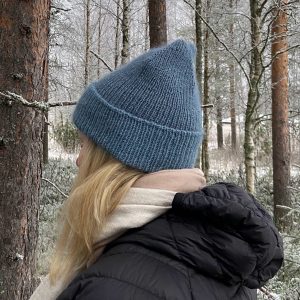
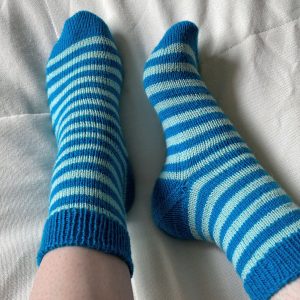
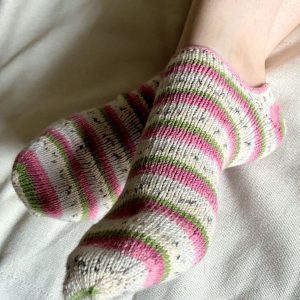
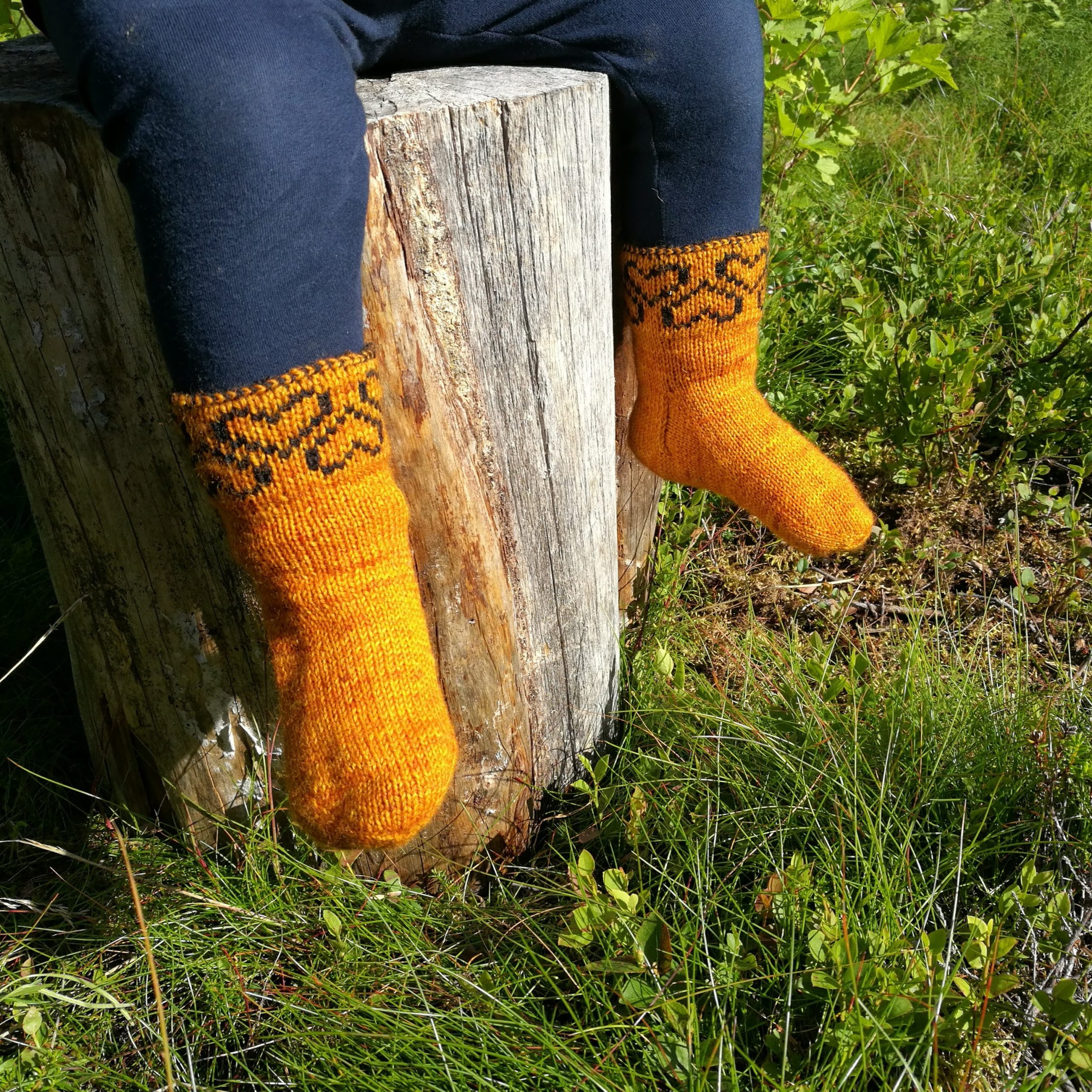

2 Responses
It is a comprehensive resource for those who want to knit a baby blanket. This guide explains the types of yarns that are ideal for knitters with various needs and preferences. Taking into account the sensitive skin of babies, soft and reliable yarn options are offered. In addition, the guide helps knitters to understand the function of the blanket, the season in which it will be used and the yarn characteristics suitable for knitting projects. This guide is a guide to make the baby blanket knitting experience more enjoyable and successful.
So helpful on all counts. Plus I want to travel to Finland.
I look forward to the sock tips.
How do I get your blog?